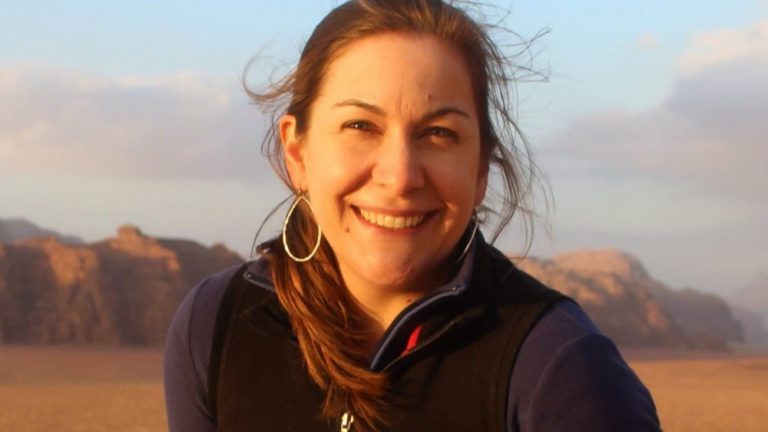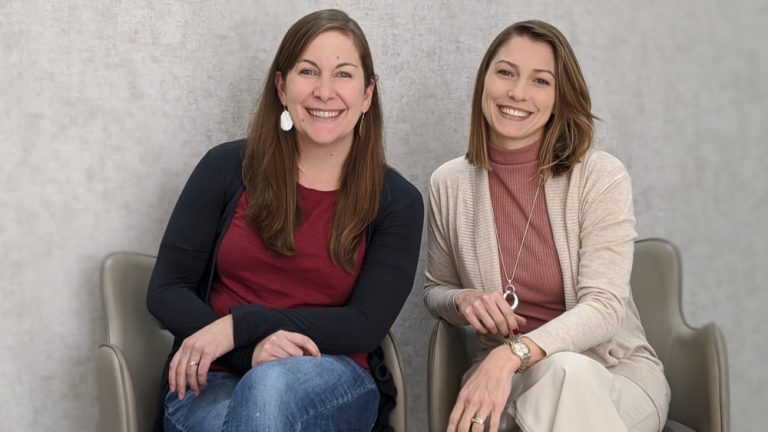From surviving on beans and rice to achieving business success as an intercultural coach
Aug 12, 2020 · by Richard Farkas

Erin Reyes is co-founder of the Shababeek language centre in Jordan, perhaps the largest and most successful of its kind in the country, and many neighbouring countries too. The business co-founded by Erin and her partner, Jennifer Killpack, owner of the centre, started the 2020s strong and growing. Outside of the global coronavirus challenges, things are going well.
But it wasn’t always so easy. Back in 2007, Erin was working in a remote village in Latin America enjoying her work as a teacher but living an insecure economic situation, paid in beans and rice – and not advancing up any career or business ladders.
A self-imposed intercultural challenge
The bridge between these two contrasting situations was intercultural. Erin set herself an intercultural challenge to immerse herself completely in a culture and a language very, very different from her own. Erin’s chosen country was Jordan, a relatively conservative Islamic kingdom with borders to Iraq, Israel, Saudi Arabia and more. Soon, with her close friend Jennifer, a new goal to build a business was set into motion.
Mission impossible?
The business challenge seemed to embrace the impossible. The mission appeared to ignore the realities. How could two Americans create a business of a kind which had never before scaled in Jordan, where people are openly suspicious of your motivations and earnestly question the soundness of your business idea, where personal connections are everything, and where some familiar bedrock concepts of American business, such as a generally dependable and transparent legal system, were simply not present?

Imported ideas won’t work
Erin’s response to this challenge was a combination of her own methodology and a voracious appetite for insights and approaches from the intercultural field. Within a short time living in Jordan it was obvious that you could not import your home-culture’s model for business success into this country. You’d need a business approach far more rooted in the local culture.
تعلم اللغة العربية
First, Erin invested fully in learning the language at a very deep level. Language skills opened doors and turned acquaintanceships into friendships which in turn opened doors to a world of social connections, a multiplying network of people willing to help a friend or a friend of a friend.
Suspicious activity
Life is rarely so simple, and learning the language aroused suspicion too. In this tense and volatile region of the world, local people may have in mind that there could be foreign spies in the country, and if true, those spies might look and sound like you do. Gaining acceptance here in Jordan would demand so much more than just knowing the language.
Success was not coming easy, but some early wins with her expanding and deepening network of local friends convinced her to continue to strive on the path she had set herself.

Out of the cultural comfort zone
With the help of intercultural literature, Erin trained her eye to see important details of culture in everyday situations. She noticed that other people were not seeing – nor not responding – to those cultural differences.
Erin found a way to stay true to herself while adapting authentically to the culture she was in. As their business grew, Erin began to convert her experience and the collected research from the intercultural field into cultural-competence components at the language centre.
Their Shababeek language centre was gaining a reputation as a forum for facilitating relationships between Arabs and others. The centre’s development model was based on the idea of nurturing students. The service provided support as students gained language skills and passed deeper into authentic intercultural experiences, further out of the comfort zone.
Diversifying the management
Within a year, the business was at a scale and complexity where more local talent was needed in the management. Drawing on famous American entrepreneurial characteristics of hard work, persistence and a “we can figure this out” attitude had taken the founders a long way, but recruiting talented local managers for the business was a game-changer.
Recruitment of staff, which was almost entirely by social media and personal networks could now accelerate and expand access to new sources of talent.
Erin continues to be part of the leadership of the Shababeek language centre and has more recently developed an independent business, CultureDive, which focuses 100% on her intercultural practice.
Stepping back from personal crisis
With the CultureDive brand, Erin is delivering a compassionate service to expatriates who are facing challenges often so intense that their entire expatriate assignment is threatened. “I had seen so many early returns from my expatriate circle of friends” says Erin, “I created CultureDive to ensure that people had a way to step back from crisis when they are hurting on an overseas assignment.”
CultureDive is more than a preventive to expat failure. According to Erin, CultureDive exists to enhance people’s lives as expats. The methodology gives clients cultural lenses, helping them adapt to extreme difference while retaining their own strong sense of self.
“We’re here to help expats thrive”, says Erin. “We know that it is hard to live and work in another culture. When people start working with us, they may feel that they are also surviving on a diet of rice and beans, so to speak. My story, and many other stories like mine are proof that stepping whole-heartedly into a new culture can bring the energy and inspiration which turns your whole life around”.
Erin Reyes is CultureConnector’s Cultural Correspondent for Jordan.
Image credits: Erin Reyes
